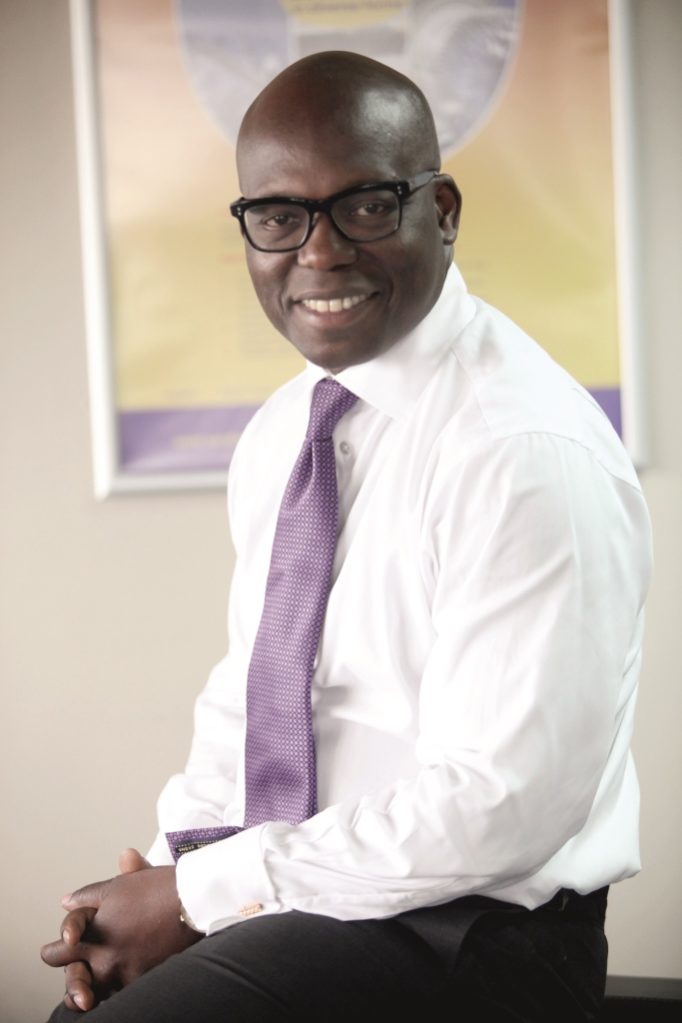It took the prestigious, New York City-based Columbia University two years to snag Wale Tinubu as keynote speaker at their annual Africa Economic Forum. Not surprising, Tinubu maintains an extremely busy schedule running Oando Plc, the first Nigerian company to list on the Johannesburg Stock Exchange as well as the Nigerian Stock Exchange, with a market capitalization of $1.4 billion and more than a thousand staff.
The forum, in its eleventh year, was held at the Ivy League school’s sprawling campus on the Upper West Side of Manhattan. It highlighted the rise of Africa and provided perspective from various industry titans from the continent. Tinubu, the group chief executive officer of Oando, the sub-Saharan African indigenous integrated energy group, joined Raila Odinga, the renowned politician and former prime minister of Kenya, Rosalind Kainyah, the managing director of Kina Advisory Limited and Emmanuel Nnadozie, the executive secretary of the African Capacity Building Foundation (ACBF) to discuss the continent’s economic rise.

It has been more than two years since the African oil magnate featured on the cover of FORBES AFRICA. Back in November 2011, Tinubu ended his first interview with the magazine, saying “Africa is a challenging continent; you fight for water, you fight for food, you fight for shelter. We compete by nature, so it’s always difficult but we don’t always know it is difficult because we have a spirit of survival. Here at Oando, we deliver on the tough things.”
Fast-forward to 2014, it seems that Tinubu still has that philosophy.
Loading...
Standing in the lofty hallways of the university, dressed in denim jeans, crisp white shirt, dark-colored suede blazer and his signature horn-rimmed glasses, one could have easily mistaken Tinubu for a professor; fashionably modern but unassuming even though he sits at the helm of a $1.7-billion energy conglomerate.
During the chat with FORBES AFRICA, Tinubu discusses his company’s acquisition of the Nigerian upstream oil and gas business of ConocoPhillips, an American multinational energy corporation, in a $1.7 billion transaction.
“We were looking to acquire a company that was three times our size. We had to do several rounds of fundraising, which we successfully did. We did a rights of issue first, then we did a private placement, and then we organized a corporate facility. We had about five or six work series running simultaneously in an environment where we were deemed not to be able to do the transaction because anybody wanting to do a $1.5 billion or $1.7 billion transaction in such a short space of time is unheard of. Finance is still a challenge; it’s always been a challenge in Africa.”
The London-trained attorney-turned oil baron is known for being innovative in identifying funding opportunities from across the globe as well as from different classes of institutions. In 2012, Oando’s upstream business, Oando Energy Resources, became the first Nigerian indigenous company to be listed on the Toronto Stock Exchange with a market capitalization of $184 million.
His company started off as a trading company in oil and gas. It then went into downstream marketing, where they filed registration and diversified into gas, built three different gas fire systems, 130 kilometers of pipelines went into the services industry and now they are finally in the upstream sector.
“Our ultimate goal was to diversify our business to the upstream — exploration and production of oil and gas — because there is a substantial amount of profitability that exists and there’s an incredible value that we can add towards our indigenous participation in our oil industry.”
Tinubu explains that Nigeria is producing around 2.3 million barrels of oil a month but should be producing 4 million barrels. He also says that 65% of the reserves are on land but most of the focus is offshore because of the better return it offers.
“It is not unrealistic for us to build a $10 billion exploration and production indigenous company. When we started 20 years ago, we had no money. Today, we are probably an enterprise of $3.5 to 4 billion and by the time we complete this acquisition we will be around $6 billion and that is with zero equity.”
This is the result of delivering on the tough things.
Loading...
